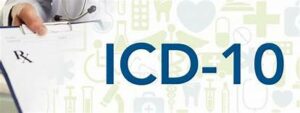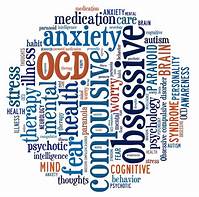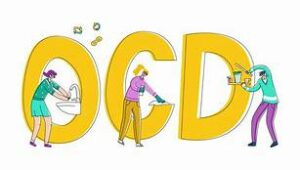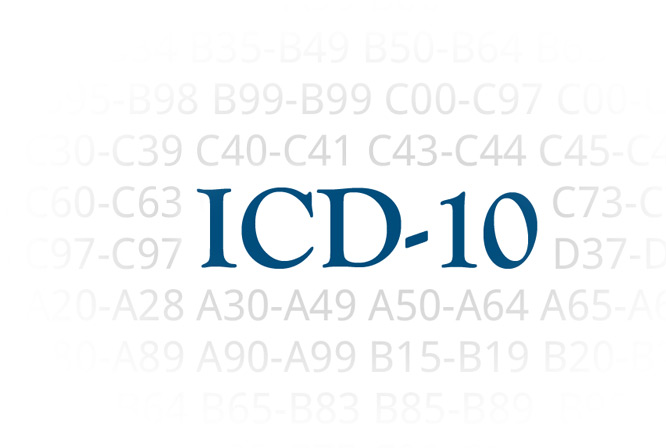Did you know that obsessive-compulsive disorder (OCD) is now classified in the ICD-10 manual? This change has caused a lot of confusion among mental health professionals and patients alike. In this blog post, we will discuss what OCD is, its diagnostic criterion according to the ICD-10 manual, and what treatment options are available. We hope that this information will help you better understand this debilitating disorder.
Contents
What Is ICD-10?

ICD-10 is the tenth revision of the International Statistical Classification of Diseases and Related Health Problems (ICD), a medical classification list by the World Health Organization (WHO).
The ICD is used to code and classify mortality data from death certificates and morbidity data from both inpatient and outpatient records. In addition, it can be used to track incidence, prevalence, disability-adjusted life years, and years with disability for diseases and other health conditions. WHO publishes periodic updates to the ICD to keep it current with advances in medical science.
What Is OCD?

Obsessive-compulsive disorder is a mental illness that is characterized by obsessions (recurrent, unwanted thoughts, impulses, or images) and/or compulsions (repetitive behaviors or mental acts that a person feels compelled to do to alleviate anxiety or distress). OCD can cause significant impairment in a person’s ability to function at work, school, or home.
OCD In ICD-10

According to the tenth edition of ICD, the essential feature is recurrent obsessional thoughts or compulsive acts. Obsessional thoughts are ideas, images, or impulses that enter the patient’s mind again and again in a stereotyped form. They are almost invariably distressing and the patient often tries, unsuccessfully, to resist them. They are, however, recognized as his or her thoughts, even though they are involuntary and often repugnant. Compulsive acts or rituals are stereotyped behaviors that are repeated again and again.
They are not inherently enjoyable, nor do they result in the completion of inherently useful tasks. Their function is to prevent some objectively unlikely event, often involving harm to or caused by the patient, which he or she fears might otherwise occur. Usually, this behavior is recognized by the patient as pointless or ineffectual, and also repeated attempts are made to resist. Anxiety is almost invariably present. If compulsive acts resist, the anxiety gets worse.
Obsessive-compulsive disorder (OCD) is a type of anxiety disorder. If you have OCD, you have repeated, upsetting thoughts called obsessions. You do the same thing over and over again to try to make the thoughts go away. Those repeated actions are called compulsions. Compulsions include washing your hands, counting, checking on things, or cleaning. Untreated OCD can take over your life. Researchers further think brain circuits may not work properly in people who have OCD. It also tends to run in families.
Diagnosis Criteria
- Predominantly obsessional thoughts or ruminations
- Predominantly compulsive acts
- Mixed obsessional thoughts and acts
Treatment Options
If you have symptoms or suspicion of developing any of the above signs, it is important to approach the right type of mental health professional for a timely diagnosis and also an effective treatment plan. A clinical psychologist or psychiatrist can provide and assess a mental disorder and provide further treatment for it.
Therapy
Cognitive-behavioral therapy (CBT) is the most effective treatment for OCD. CBT teaches you how to change your thinking (cognitive) patterns and your behavior (behavioral). It usually involves exposure and response prevention (ERP), which is a type of gradual exposure therapy. ERP gradually exposes you to the things that trigger your OCD while you learn healthy coping skills.
Psychotherapy is another treatment option for OCD. Psychotherapy is a type of counseling that helps you understand your thoughts and feelings and also how to deal with them.
Medication
Medication can also help to treat OCD. The most common medication for OCD is selective serotonin reuptake inhibitor (SSRI). SSRIs further help to increase the level of serotonin in the brain. Serotonin is a neurotransmitter or chemical messenger, that plays an important role in mood and mental health. Other types of medications that treat OCD include tricyclic antidepressants, antipsychotics, as well as beta-blockers.
Disclaimer: medication should be strictly and closely monitored by a qualified and legal healthcare provider to ensure maximum efficacy and further side effects.
OCD can be a lifelong and debilitating disorder, but treatment can help you manage your symptoms and live a productive life. If you think you might have OCD, talk to your doctor or mental health professional. Early diagnosis and treatment can make a big difference. Psychologists at Mantra Care provide affordable and easy online therapy sessions for effective mental health treatment.
Conclusion
In conclusion, OCD is a mental illness that characterizes by obsessions and/or compulsions. It is now classified in the ICD-10 manual. If you or someone you know has OCD, there are treatment options available. Seek professional help if you are struggling to cope with this disorder.
If you are looking for affordable Online OCD Counseling MantraCare can help: Book a trial OCD therapy session


